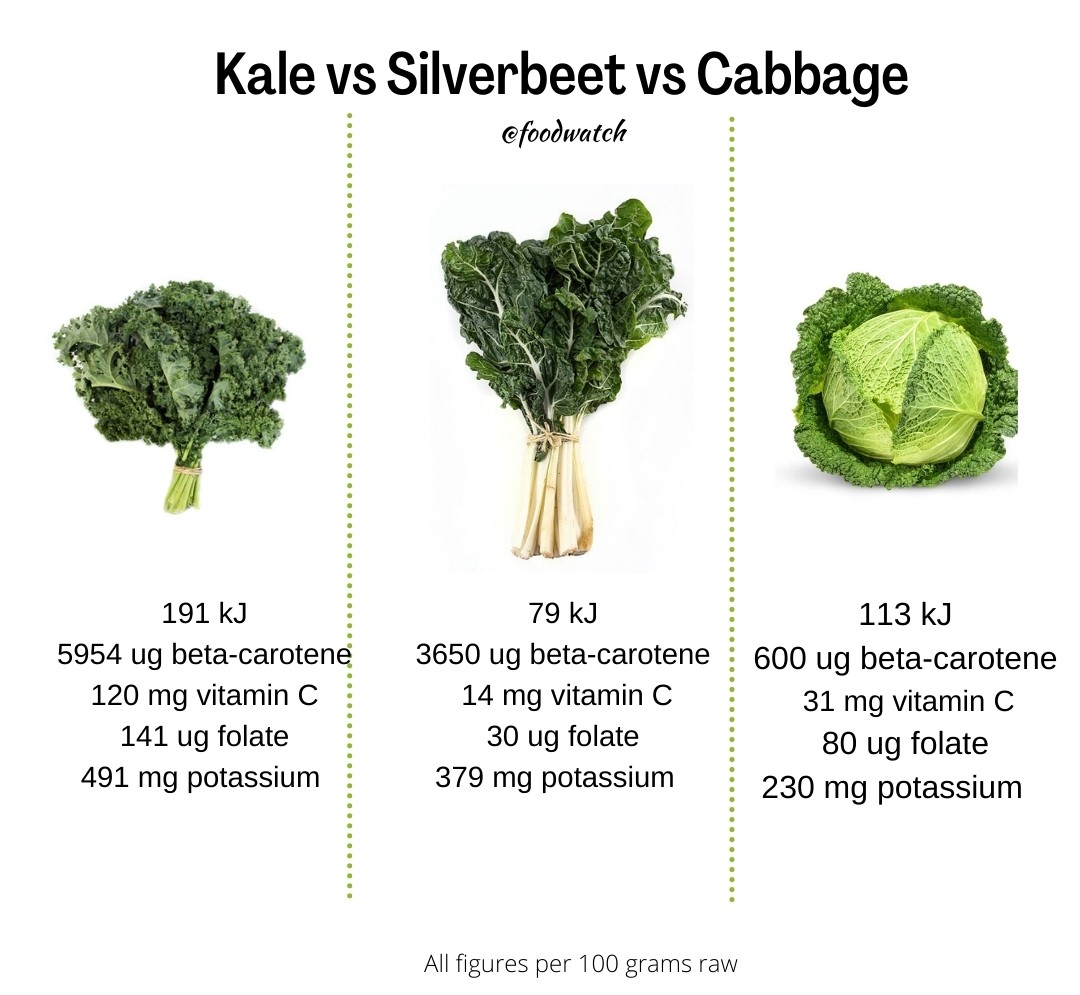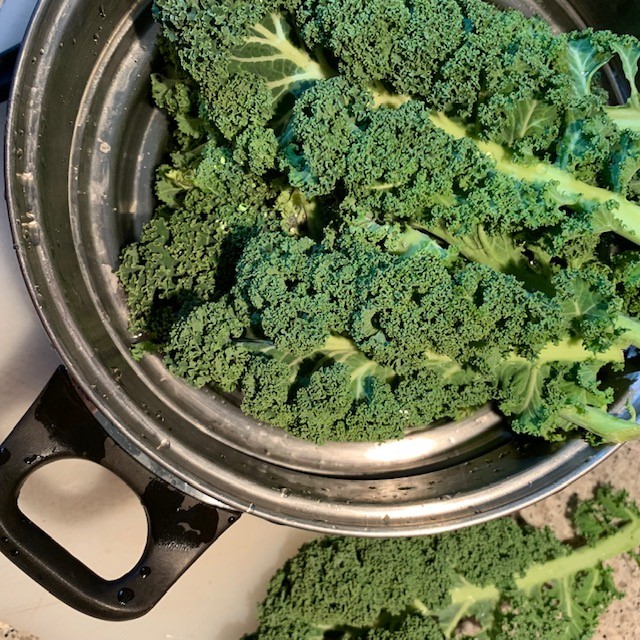- Home
- Blog
- Healthy Eating for Wellness
- The kale backlash
The kale backlash
Written by Catherine Saxelby
on Wednesday, 06 October 2021.
Tagged: ancient grains, grains, health, healthy eating, healthy lifestyle, nutrition, teff, whole grain

Why is kale (Brassica oleracea var. acephala) singled out for superfood status? It appears in many ‘lists of the healthiest vegetables’. And yes, I know it’s good for our health, but I really doubt that most of us actually LIKE kale.
Think about it – kale is tough, chewy and sometimes not pleasant to eat. If shredded very finely, it can make a decent addition to kale slaw or similar salads. But that’s about it.
A recent paper echoed my sentiments, saying it remains unclear why kale is declared superior to other cruciferous vegetables. The authors claim it’s questionable whether this statement about kale is triggered by scientific evidence or some other factors.
The paper lists 116 references, noting that relatively few research papers are available, especially in vivo biological studies. Kale is a member of the cabbage family. It has the same silvery-green colour of outer cabbage leaves, but its leaves do not form a head. If kale is accorded superfood status, then so should other Brassicas such as cabbage or broccoli.

It’s claimed to be incredibly nutritious. It has every vitamin and mineral known to science and heaps in between, with no fat, no carbs, no gluten, no dairy – nothing that could upset or detract. Sounds way too perfect for me.
I just got sick and tired of hearing how nutritious kale was. And how I had to include some in my daily diet. Consider this marketing hype:
“Kale of any variety is a nutritional powerhouse with many health benefits, the main linked to the high concentration of vitamins A, C, K and calcium as well as numerous phytonutrients.”
I mean – powerhouse? Really? I get that it’s linked to cabbage and silverbeet but why not just eat those and forget kale? I rest my case.
So, I put this article in my Newsletter in July 2021 and many of you emailed me about the joys (or not) of kale. Half of you agreed with me in disliking kale, while the other half of you love it and even sent me your favourite kale recipes (see below)!
For instance, I received this email from Alana:
‘Hello Catherine. I eat everything. Kale is the lowest on the list – too chewy. Give me Brussels Sprouts anytime.’
And another from Ruth:
‘Thank you, Catherine, for your honest account of kale. I have tried to like it. I have massaged it with oil and added it to salads, have grown it, have added it to smoothies, have made kale chips with it. I have tried. However, no more will I feel guilty for not enjoying it. Silverbeet, cabbage, brussels sprouts, broccoli and cauliflower I will enjoy even more, knowing they are as good as kale!!’
In contrast, Jenny wrote:
I love kale but my secret to eating lots of it is my red cabbage coleslaw.
- 1/4 red cabbage,
- shredded 1/2 bunch kale, chopped and thick stems removed
- 2 spring onions, chopped
- A handful snow peas (raw), sliced diagonally
- 1–2 tablespoons parsley, chopped Coarse black pepper
- 1–2 tablespoons dill tips
In a bowl, mix all the ingredients together and place in the fridge. When ready to use, grab a good handful and place in a bowl, then add 1–2 tablespoons whole egg mayonnaise. The mix lasts a week in the fridge before going bitter. I usually have this slaw alongside another salad, poached or boiled eggs, or veggie fritters. This eases the veg ‘pressure’ at dinner.
The bottom line
Kale tops all the lists for lutein (similar to carotenoids), vitamin K, fibre, vitamin C and potassium. But so do spinach, chard (silverbeet), and turnip and collard greens. And let’s not forget those veg we eat in much larger quantities such as cabbage, broccoli, capsicum, carrots and pumpkin, as well as green leaves like rocket (arugula), baby spinach leaves, watercress and radicchio. We should eat all of them.
Related links / External websites
Read more at https://pubmed.ncbi.nlm.nih.gov/29557674/
Foodwatch
The Good Stuff
The Boring Stuff
© 2025 Foodwatch Australia. All rights reserved
Website by Joomstore eCommerce






